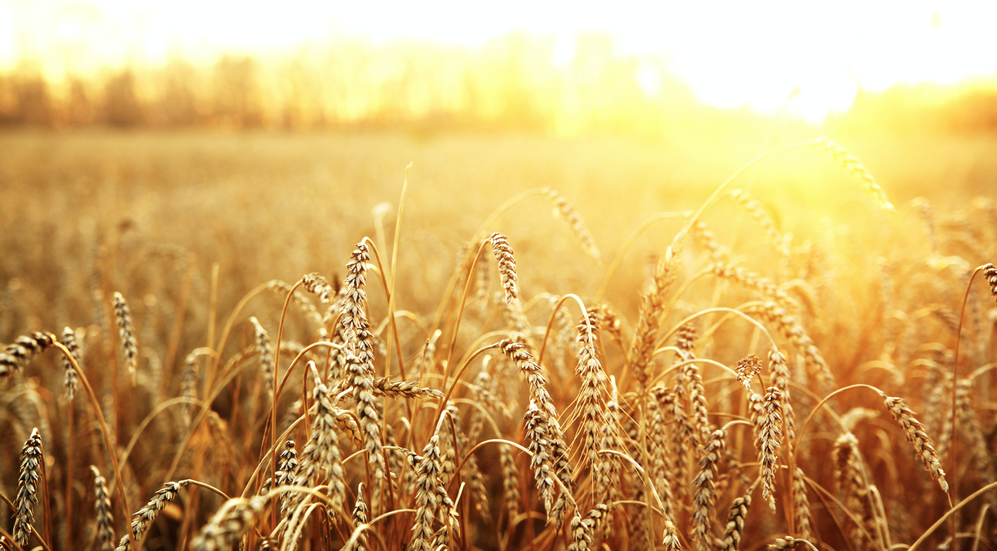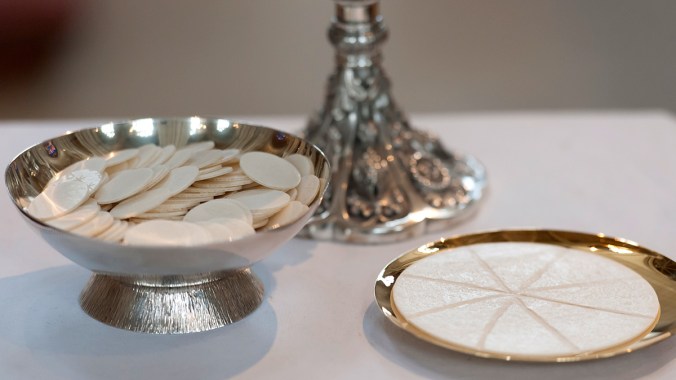
CORPUS CHRISTI – A CELEBRATION OF LIFE ABUNDANT
Simon Appolloni, Associate Publishing Director
My query, and appropriate I think, considering we are celebrating the feast of Corpus Christi, is this: if the Eucharist truly is the body and blood of Christ, why do we not seem concerned whether its original substance (bread) contains pesticides, herbicides, or fungicides?

There is certainly concern (within the Roman Catholic tradition, which varies from other Christian traditions) that the original bread substance be pure. Canonical norms require that altar breads be made “purely of wheat,” and “recently made,” so that there is “no danger of decomposition.” Moreover, “It is a grave abuse to introduce other substances, such as fruit or sugar or honey, into the bread for confecting the Eucharist.” (Redemptionis Sacramentum #48)
To be sure, our faith tells us that the consecration of the bread ceases to be bread in substance in order for the whole Christ to be present; fine. But does not the original offering of bread and how it is made mean anything? The above norms are explicit that decomposition is not an option. Why then is there nothing – at least what I can find – that also demands that the bread be organic, free of toxins that kill life in its production?
Certainly, adding honey to this holy bread of life cannot compare to allowing poisons (which is what pesticides are) to lace the bread that is to be transformed? The absence of rules for organic altar bread (and wine) – again, as far as I can find – tells me that, in some sense, honey is the real vile ingredient here, not poisons. Why?
The feast of Corpus Christi, for me, marks a time to consider the deep Earthiness of our faith: the real body and real blood and the purpose for the incarnation. “The thief comes only to steal and kill and destroy. I came that they may have life, and have it abundantly,” Jesus says in John 10:10. Surely, life is not some abstract concept unblemished by soil and dirt?
Lutheran theologian Cynthia Moe-Lobeda points out that rather than participating in this wonderful creative mission of life we have, Christians have become “un-creators,” destroying all forms of life – and here I’m including the use of pesticides. (See Moe-Lobeda’s excellent book, Resisting Structural Evil: Love as Ecological-Economic Vocation. Minneapolis: Fortress Press, 2013).
Debates in Roman Catholic circles at this point in time seem more concerned with gluten levels:https://www.catholicnewsagency.com/news/gluten-and-communion-whats-a-celiac-to-do-72220. I have noticed that the Anglican Contemplative Community of St. Clare, Freeland makes a point of using organic flour (https://oscfreeland.wordpress.com/work/altar-breads/). Have we become so disoriented in our purpose as Christian Earthlings that fruit, sugar, honey and gluten-free are vilified while poisons are not?



I agree with this article. Although I am not sure if any plant can truly be called organic we should still try to use the purest ingredients that can be found.
This was an insightful article. An excellent reminder for us to consider our relationship to the created matter we use in our worship. Thank you for writing it.